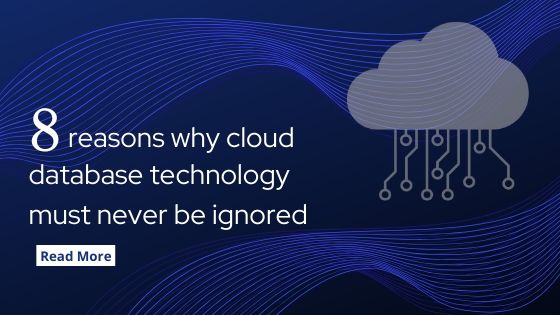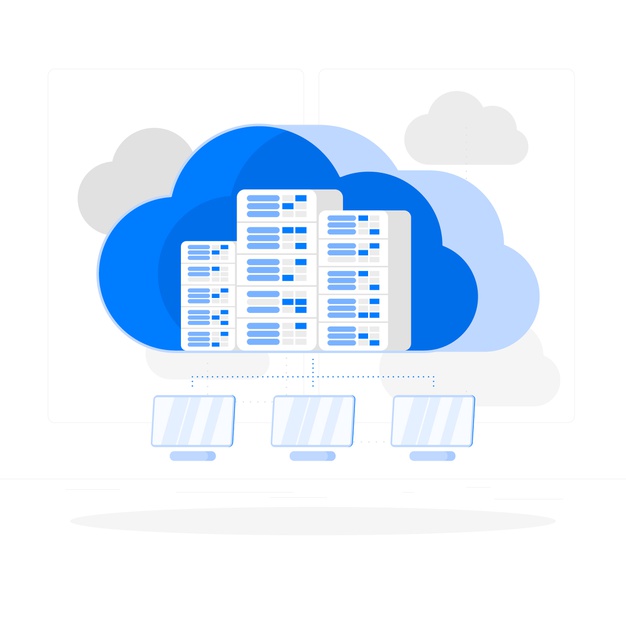
8 reasons why cloud database technology must never be ignored
The cloud database management system is related to a distributed database, which offers computing as a service. It offers resources web infrastructure, software, and information over the network. Use the cloud as a platform for storage allows mine and compute databases from any place. The distributed storage solution is being increasingly used for scale-up by the various web applications.
The users can use this solution to outsource the resource and facilities to the third-party server.
If you’ve decided to move your database online, go through the below points for a better understanding of cloud database technology benefits for your business.
Cloud-based document storage
Cloud-based document storage is one of the main benefits of online database management. You can certainly manage large files, as you can save space on a hard drive. Easy integration of cloud-based document storage solution into your invoices, spreadsheets, workflows, & tasks, substituting your Dropbox.
Accessibility and version control have made it easier for workers to collaborate on a project because they can quickly exchange files and monitor all the work is being performed on the right file at the right time. The storage of documents allows businesses to share capabilities that fasten the workflow from any location.
Cost-effective
The entire spectrum is operated by cloud database pricing, from free to monthly subscriptions. There is no notable upfront licensing fees, huge annual maintenance charges, and periodic audits on the cloud. Therefore, cloud technology is effective & economical for all businesses.
Disaster Planning
Since the arrival of the disaster is unpredictable, it is vital to have a reliable backup for any business that can function in the time of emergency. The effective solution is online database management that offers coherent cloud backup for off-site storage, reliable backup services for physical and virtual systems security, and automatic backup conversion from physical to virtual during server failover. Cloud technology has been an effective disaster recovery & the users are satisfied with the solution.
Dismissal of physical infrastructure
The cloud service company will be responsible for the server, storage, and other resources maintenance and availability. The entity which has the database is permitted to support and maintain the software for the database along with its content.
As we speak about the DBaaS, the service provider maintains and manages the software for the database, leaving users responsible for the data.
High Security
Security is a major concern especially when running your databases on in-house servers. It is crucial to ensure that your database has an updated kernel and other essential tools to counter digital threats. It’s convenient to do, but most businesses don’t do it precisely. The first concern that is frequently raised about data protection is whether the cloud will be able to protect data? The answer is yes! Cloud will back up your data. So leave the cloud service provider with your databases, and have a peace of mind.
Scalability
The cloud-hosted databases are versatile, affordable, and efficient as compared to traditional databases. To scale any dimension, nodes from a group need to be added or subtracted to adjust the storage capacity along with I/O operations/second. To execute this operation, you need to redistribute and deliver copies of the data between nodes. This challenge does not allow scalable to be crafted, distributed databases, but it is effectively solved by the advanced cloud-native databases.
Performance
The concern that has been recorded about databases is that they’re not fast sufficient. In some cases, short time queries take a long time to process. The data sometimes isn’t even accurate! Cloud-based databases are faster and more efficient than traditional on-site systems.
They complete the processing of the database quickly by accumulating as many instances as necessary. Uptime also matters! Cloud providers have 99.99% configurations which are difficult to achieve for an in-house solution.
User-friendly
The people in the business can take full control of software as the cloud facilitates everything. For instance, Activities such as starting a new database cluster and setting it up for load balancing which was utilized as the database administrator (DBA) domain.
The databases featured tools effectively handle the databases within the company for employees. Enterprises do not require to spend time on fine-tuning their databases, can rather focus on other critical issues.
Conclusion
Cloud databases have numerous advantages over traditional counterparts, including improved accessibility, automated failover recovery, on-the-go automated scaling, no upfront investment, and on-site hardware maintenance, and enhanced performance. Cloud database technology can truly help you in achieving your planned business goals by eliminating the complexities.
For any query about cloud-based Tally visit Tally-on-cloud.com.
Read other related blogs:
–7 Important points to consider while choosing a cloud service provider
–8 reasons why cloud database technology must never be ignored


